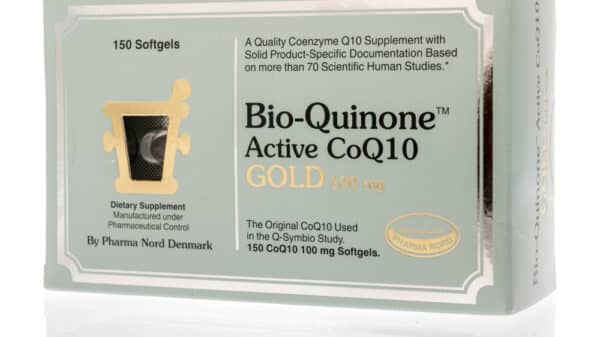Shame is often the heavy, invisible burden that many individuals carry as they navigate the rocky terrain of addiction recovery. It can feel even more stifling than the addiction itself. Despite growing awareness that addiction is a medical condition rather than a reflection of one’s character, countless people still grapple with the deep, suffocating weight of shame during their recovery journeys.
This shame often arises from societal stigma—the negative stereotypes and judgments that still linger around addiction and mental health. For someone trying to overcome substance use, this stigma feels like an extra load they must shoulder with every step they take. Places like Northwoods Haven in Minneapolis, MN recognize the urgent need to break the cycle of shame right from the start, prioritizing acceptance and understanding. Clinicians know that recovery isn’t merely about abstaining from substance use; it involves healing one’s self-image and rediscovering hope.
When individuals are repeatedly exposed to damaging labels and judgments, they may start to internalize them, leading to thoughts like, “I’m broken” or “I don’t deserve help.” Addiction can lead people to make choices they later regret, intensifying feelings of worthlessness. This internalized stigma feeds into shame, heightening mental health struggles and increasing the likelihood of relapse. Understanding how shame and stigmaact in the context of addiction recovery is the first step to breaking free from this destructive cycle.
Shame is a gut-wrenching sensation, creating a sense that we are unworthy of love or belonging. Within the realm of addiction, it often whispers insidiously: “I’m a bad person because I struggled with drugs or alcohol.” This is different from guilt, which relates to feeling remorse for specific actions, such as, “I made a mistake and hurt someone.” While guilt can sometimes spur positive change, shame strikes at the very core of our self-worth and tends to be devastating.
Stigma, on the other hand, is an external force. It’s the negative attitudes and stereotypes that society attaches to addiction or mental illness, including the misguided belief that someone with a substance use disorder is morally weak or “dangerous.” Over time, this societal stigma can morph into internalized shame. These two forces feed into each other: societal judgment exacerbates personal shame, and that visible shame can reinforce harmful stereotypes, creating a vicious cycle.
Consider someone new to recovery who hesitates to share during a group therapy session for fear of judgment. By holding back, they miss out on the understanding and relief that come when they realize others share similar struggles. When they finally muster the courage to speak up and are met with empathy instead of judgment, they feel the weight of shame begin to lift. They start to recognize that they are not alone or irredeemable—they are deserving of help and belonging. Shame flourishes in silence, so speaking openly in supportive environments like Northwoods Haven is a crucial step toward healing.
Stigma is more than just an annoying societal issue; it can undermine recovery in real, harmful ways. Research shows that stigma around addiction can prevent individuals who need help from seeking it. In fact, a national survey in 2021 revealed that around 10.4% of people who felt they needed substance use treatment didn’t receive it due to fears of negative community judgment. When people forgo treatment because of stigma, the results can be tragic: their situation may deteriorate, and opportunities for early intervention are lost.
Even those who do enter treatment are not shielded from stigma’s detrimental effects. When individuals carry heavy shame into rehab or therapy, they may struggle to engage fully. Thoughts like “I’m hopeless” or “I don’t deserve to get better” can become self-fulfilling prophecies, resulting in dropout or relapse. Stigma within healthcare settings can amplify these feelings. If patients sense judgment from a counselor or doctor, it reinforces their negative self-image and can deter them from seeking further help.
Additionally, internalized shame severely impacts mental health. Studies reveal that self-stigma—when individuals internalize society’s negative stereotypes—correlates with reduced hope and self-esteem, exacerbated symptoms, and an increased likelihood of dropping out of treatment. When people view themselves as “broken” or “less than” due to addiction, it robs them of the confidence and motivation necessary for successful recovery. Therefore, addressing stigma is not merely an optional enhancement; it’s a vital component of effective addiction treatment.
Stigma can even create barriers within a person’s support system. Families might feel embarrassed and hide a loved one’s addiction, fearing judgment from others. In certain communities, strong anti-addiction sentiments can lead to resistance against opening treatment centers or funding recovery initiatives. These reactions leave those grappling with addiction feeling isolated, making it even harder to find help and perpetuating the cycle of shame.
Breaking free from the shame-stigma cycle takes intentionality and support. Here are some key strategies to help loosen shame’s grip on recovery:
Education and Awareness: Knowledge can be a powerful antidote to stigma. Understanding that addiction is a treatable medical condition rather than a moral failing can help debunk myths that fuel judgment. Community education and sharing success stories from those in recovery can replace fear with understanding and hope.
Open Dialogue and Storytelling: Engaging in open conversations about addiction and mental health can significantly reduce shame. Sharing personal stories and receiving empathy rather than judgment can help lessen that heavy sense of shame. Whether in group therapy, among friends, or in public discussions, honest storytelling dismantles the secrecy that shame thrives on and reassures individuals that they are not alone.
Compassionate Support Networks: Recovery doesn’t have to be a lonely journey. Building a support system focused on acceptance rather than criticism is crucial. This involves surrounding oneself with counselors and peers who offer nonjudgmental support, alongside friends and family who provide understanding and encouragement.
By deploying these strategies and nurturing environments that emphasize compassion over judgment, we can help dismantle the barriers of stigma and shame that impede recovery, paving the way for individuals to rediscover their self-worth and hope for the future.Empathy can make all the difference on the journey to recovery. Whether from friends, family, or sponsors, knowing you have a support system can lift a heavy weight off your shoulders. The simple phrase, “I’ve been there too,” can be incredibly validating, reassuring you that you’re not alone in feeling what you feel. Acknowledging that your struggle is understood can help replace feelings of guilt with a sense of community and belonging.
Healing also means rediscovering who you are beyond your addiction. It’s crucial to see yourself as a person with strengths and capabilities, not just a label. Each victory, no matter how small—whether it’s a month of sobriety or rekindling a relationship—deserves to be celebrated. These moments build your confidence and remind you of your inner strength. For many, the journey of recovery leads to empowerment through helping others. By sharing their story or advocating against stigma, individuals turn their pain into purpose, reminding themselves and the world that they are not just defined by their past problems but by their resilience and commitment to change.
A powerful tool in reshaping the narrative of addiction is the way we talk about it. Professionals are increasingly using person-first language, focusing on individuals as people before their struggles. Instead of being labeled as “addicts,” they are “people with substance use disorders.” This subtle difference might seem minor, but it shifts the conversation from labeling individuals as their problems to highlighting their humanity. Research has shown that the language used to describe someone can significantly affect perceptions and responses. For instance, health professionals reading one term may lean toward punitive measures, while another term inspires understanding and support.
On a personal level, rewriting your own story is about acknowledging your past but reframing it into something hopeful. Instead of saying, “I ruined my life; I’m just an addict,” try telling yourself, “I’ve faced challenges, but I’m taking steps to turn my life around.” This shift doesn’t excuse past actions but provides a framework for forgiveness and growth. Recognizing your strength in overcoming obstacles allows you to reclaim your identity and move beyond the weight of shame. Many find that as they heal, they also become inspired to help others, marking their journey from one of defeat to one of purpose.
Support groups and treatment programs are fostering this positive narrative, encouraging participants to share and celebrate achievements. No longer do people need to hide their journeys; instead, milestones—whether it’s 30 days sober or a year into recovery—are honored and applauded. Such celebrations shift the view of seeking help from an act of shame to a badge of honor.
Society is beginning to change as well. Increasingly, public campaigns and media narratives showcase the possibility of recovery, featuring diverse individuals who have transformed their lives. This counters the narrative of addiction as a story of endless tragedy, highlighting that healing is indeed possible. Many communities are supporting initiatives that treat addiction as a healthcare issue, offering rehabilitation programs instead of punitive measures for non-violent offenses. Such changes create an environment where asking for help is seen as courageous, paving the way for a culture of acceptance.
In conclusion, breaking the cycle of shame surrounding addiction is just as crucial for mental and emotional healing as it is for physical recovery. By replacing stigma with empathy and compassion, we free individuals to embrace their journeys. As they step out of the shadows and confidently share their progress, they invite others to do the same. There’s a saying in recovery, “We’re only as sick as our secrets.” By addressing shame and stigma openly, we dismantle the barriers that keep individuals from healing.
For those supporting loved ones on this journey, it’s vital to approach with kindness and understanding. Remember, the person confronting addiction is still the one you care for deeply—not a label or a “failure.”
While the path from shame to acceptance is undoubtedly challenging, it is equally transformative. Every time someone in recovery rejects an old label, they reinforce their worth. Each shared success story chips away at stigma, reshaping the narrative around addiction into one that celebrates courage and resilience. Those facing addiction are not lost causes; they are lives in progress, unfolding in powerful, inspiring ways.
Image Source: fizkes / Shutterstock
































